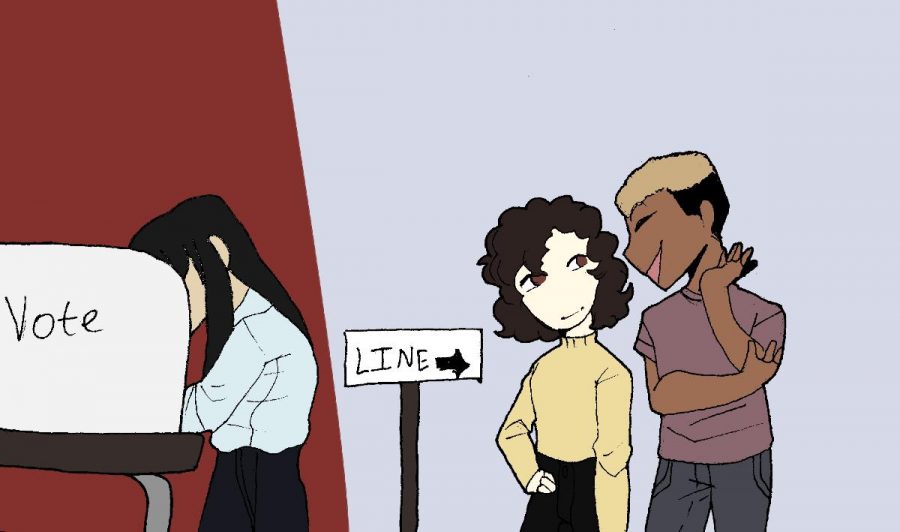Local activism for local issues: Why you should care about local politics
This past summer when I told people I was interning for a woman running for Municipal Clerk of Court, the most common response was “What is that?”
This exemplifies a trend that has been increasingly concerning to me: the fact of the matter is that most people have no idea what is going on in local politics.
The Municipal Clerk of Court is essentially responsible for ensuring the court system is functioning smoothly. When I was working as an intern I mainly worked on compiling a mailing list by cross-referencing names and while that wasn’t anything groundbreaking, that does not mean that local involvement does not matter.
In the mid-90s, six Chicago aldermen and several more city officials were convicted by the FBI for everything from drug trafficking to ties to organized crime as a result of Operation Silver Shovel. The corruption was so extensive that there was an entire floor at the Metropolitan Correctional Center downtown dedicated to housing those convicted.
Thirty years later, corruption in Chicago politics has not disappeared.
This June, Alderman Carrie Austin’s office was raided by the FBI.
Alderman Edward Burke’s office was also stormed by the FBI in November of 2018 and less than five months later he was re-elected to office. He has even been indicted on racketeering charges and still remains in office.
A combination of ignorance and apathy has led to a lack of change in local politics.
Local elections are the ones that affect us the most, yet we do not vote in them.
One of the most major local elections in recent history, the 2019 Chicago mayoral race, had a turnout of just 32%. If a defining election has a voter turnout of less than one-third of voters, what hope do down-ballot races have?
Mrs. Smith, an AP Government and Politics teacher, feels that local elections are the ones affecting day to day life despite their lack of popularity.
“It’s not exciting to go vote for the comptroller; it’s exciting to vote for the president,” Smith said. “But in reality, who’s going to affect your day-to-day life? It’s going to be your local politicians.”
Our everyday lives are affected by local issues like potholes, school funding and garbage collection. None of these things are managed by the federal government.
Congress moves notoriously slowly; your life is much more likely to be affected by laws being worked on in your local government than the laws currently in congress.
The politicians in our state and local governments are much more accessible than those in the federal government. My state representative, Will Guzzardi, lives in my neighborhood. When I wrote to him about a policy issue, he—not a staffer—actually wrote back to me.
Smith said that many people just assume work will get done locally.
“People take for granted that this all just happens, and it doesn’t,” Smith said.
When people celebrate things like marijuana being legalized in Illinois or abortion protections being passed, many fail to realize that the people responsible for it being passed are their state senators and state reps.
Your state representatives represent fewer people than your representatives in the federal government. As a result, they are more in tune with your needs. If you could only make one phone call to a politician, you could accomplish more if you called a local politician rather than a federal one.
Laws passed locally could potentially have influence federally. If enough states legalize marijuana, for example, it could potentially inspire change on a national level. Working to restore voting rights for people convicted of a felony could lead to national change if they then vote.
You can inspire national change by working at the local level; movements have to start somewhere.
There is more than one way to inspire political change, but one of the most effective ways is voting in local elections. If you actually want change to happen around you, vote because change starts at the local level.
Your donations directly fund the Lane Tech student journalism program—covering essential costs like website hosting and technology not supported by our school or district. Your generosity empowers our student reporters to investigate, write, and publish impactful stories that matter to our school community.
This website is more than a publishing platform—it's an archive, a research tool, and a source of truth. Every dollar helps us preserve and grow this resource so future students can learn from and build on the work being done today.
Thank you for supporting the next generation of journalists at Lane Tech College Prep!

Sophia is currently a Senior at Lane Tech. This is her second year in journalism and her first as an editor. She has a passion for politics and follows...





